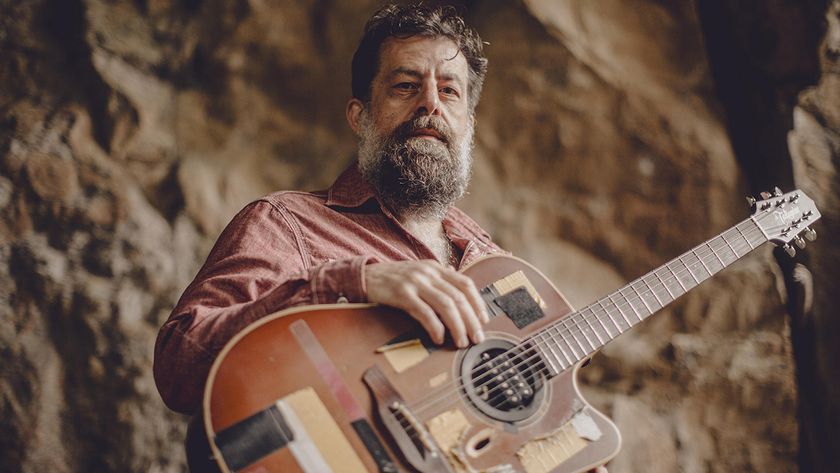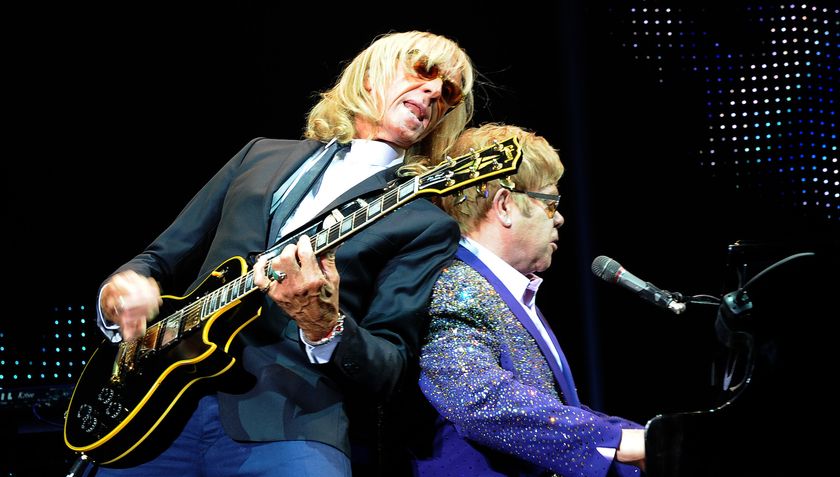Everything Everything's Jeremy Pritchard: "I really enjoy the limitations of the bass. It’s forced me to be creative with the basic building blocks of music"
Pritchard talks pedalboards, bass heroes and why he's happy to look "a bit silly" with a short-scale Fender Mustang
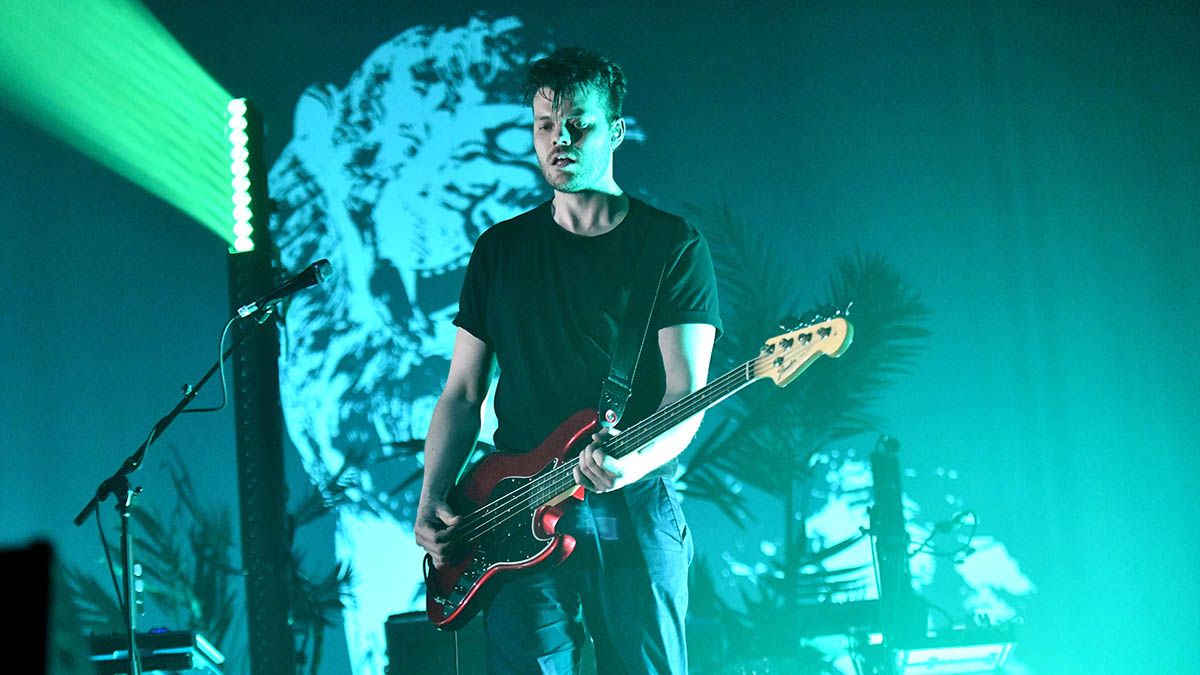
Art-rock is alive and well in the hands of Everything Everything, whose five albums to date have nabbed them a shelfload of awards. Holding down the low-end is Jeremy Pritchard, who also toured with indie giants Foals in 2019.
In both cases, he is required to play major stages, and delivers the low frequencies via some suitably hefty gear, he explains.
What’s your go-to bass rig?
“Live, I use an Orange AD200 head and a 8x10 cab. I’ve been using those for a couple of years. At first, I didn’t expect to take to it in the way that I have done, because in my head, I associated it with a vintage sound. What I really appreciate about it, though, is how simple it is and how high-quality the components are. The controls are just bass, mid, treble, gain.“
Presumably it gives you a warm, fuzzy '70s tone when you want one.
“It does do that, but it’s also very sensitive. You can set it anywhere – it’s going to sound great. I’ll use that for life. When I was playing with Foals last year, it was the same cab, but with a Fender Bassman head, which I sometimes use with Everything Everything as well.“
If it’s a long-haul flight and I can only take two basses, I’ll take a Precision and a Mustang, because I feel like I can do everything with between the two of those
And the basses?
Get The Pick Newsletter
All the latest guitar news, interviews, lessons, reviews, deals and more, direct to your inbox!
“Basically Fenders, but I throw in a few other bits and pieces too, like a Hofner Club, which I love. And I’ve got an old Rickenbacker, which I got when I was 19 for £200, and it’s worth about 10 times that now. It's a 4000, and it’s an unusually good-sounding Rick, considering it’s only got one pickup. I got lucky with that. When I first started playing, it was the only bass I had that was in working order. After that, I got really into playing a P-Bass and I’ve never looked back.“
Do you play Jazz basses too?
“I do use Jazzes with Everything Everything, and I used a Jazz entirely with Foals last year. Despite having huge hands, I really love a Jazz neck. They’re just so easy to get around.“
Are you strictly a four-string guy?
“I’ve never played a five; I don’t really have the brain. I do quite a lot of down-tuning, though, sometimes down to C sharp, but whenever I try to play a five the physicality of it just blows my mind. I could get used to it, I’m sure. The other band members in Everything Everything would love it. They’re really pro five-string, and really pro fretless. It’s me that’s the stick in the mud. It’s really interesting: our ethos is to do away with anything that’s deemed to be uncool. We want to embrace it.“
I use a Cali 76 by Origin Effects, which is basically an 1176 compressor. I’d never used a compressor before that, and it’s such a subtle pedal. It really makes a huge difference
Do you have a pedalboard?
“I do. I use a Cali 76 by Origin Effects, which is basically an 1176 compressor. I’d never used a compressor before that, and it’s such a subtle pedal. It really makes a huge difference. It’s never off. It’s got very well-calibrated attack and release settings on it – you can make pick playing seem quite cocky and tight, but it’s not going to overwhelm and shock the sound.
“And then I have a Boss OC-2, and a chorus pedal. I got into those two pedals about five years ago, partly because there was a lot more synth programming going on in the music. I was like, ‘How can I fit into this, and how can I emulate what the synthesizers are doing?’“
Do you keep the chorus subtle, or is the tone very effected?
“Chorus is more of a functional thing – just to lift the bass out of the dirt. You don’t hear it and think Peter Hook, necessarily, although there are one or two spots where I’m quite deliberately ripping him off. It’s quite subtle. And then I have a SansAmp Tri-A.C. for three different stages of gain.
“For fuzz, I have a Malekko B:Assmaster, which is really, really volatile – you have to be incredibly careful with how you set it. It’s really an amazing sound. Then I have a delay pedal, which I used for a couple of songs on Everything Everything’s Fever Dream album.
“Again, that was not something I ever expected to do, but I have the delay set in such a way that it doubles the rhythm. But on the whole, my 'board is quite minimal – I don’t really use effects a huge amount. If I’m changing the tone, it tends to happen at the bass guitar rather than down at the pedalboard.“
How many basses do you take out on tour?
“It would be the main P-Bass – the old 1969 Precision in Olympic White, which I love –and then a spare for that. Then a Jazz, the Hofner Club and a Fender Mustang, and the Rick as well. So that’s six plus spares, but I’m trying to pare that down, keep it simpler, and just stick to the idea of having one bass. I think I’ve got through the stage where I want to have multiple instruments and show off, but there are certain songs that I think demand a particular sound or a particular approach.
“It’s quite difficult to get away from those. If it’s a long-haul flight and I can only take two basses, I’ll take a Precision and a Mustang, because I feel like I can do everything with between the two of those. I love the Mustangs. I’m really into them – they’re so hard to beat, sonically. I’m always surprised how they stand out of the mix: They combine with synths and effects really well. The only reason I don’t play them more is because I’m so tall that I look kind of ridiculous with one.“
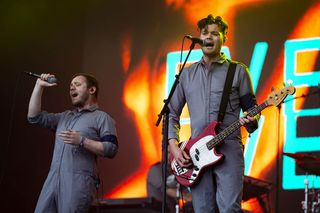
How tall are you?
“Six three – tall enough to look a bit silly with a short scale Mustang. It might be different if they did a full-scale Mustang, I’m always wondering why Fender never did that.“
That’ll be a Custom Shop job for you when you make your first million.
“Maybe... but the short-scale is part of the punchy sound.“
Tell us how you got into playing bass.
“When I first started high school, I really wanted to play the drums, but my parents talked me out of that because they were loud and expensive. My dad was a guitarist, so he steered me in that direction, and I got an acoustic guitar for my 12th birthday. I’d played the cello as a kid, though, so I subconsciously understood the role of a bass instrument within an ensemble – and the school had an electric bass, but no electric guitars, so I gravitated towards this much cooler instrument.“
The thing I like about playing bass is playing with other people. I don’t really like playing bass on my own that much
Were you better suited for the role of bassist?
“There is something to be said for the mindset of bass guitar players. It’s a less glamorous job. I wouldn’t ever go so far as to say it’s egoless – nobody would accuse me of that – but it’s an ensemble instrument, isn’t it?
“The thing I like about playing bass is playing with other people. I don’t really like playing bass on my own that much. Also, what I really enjoy about it is the limitations of the instrument. It’s forced me to think and be creative with the basic building blocks of music. I really like the rigorousness of that.“
Did your cello playing facilitate your electric bass playing?
“I think so, once I got my head around the different tuning and that it was fretted. The way that you control the harmony from the ground up was something I already understood, subconsciously.“
Who were the bassists that you admired?
“When I first started playing bass, I was listening to Blur a lot, and I’ve since realized how influential Alex James was. He’s very interesting, because – like another one of my favorite bass players, Andy Rourke from the Smiths – he’s overshadowed by a visionary guitar player, and he doesn’t take himself very seriously as a musician, but he’s better than he knows or cares about.
“As well as those two, I also loved Paul McCartney, Colin Greenwood of Radiohead, and James Jamerson. Obviously Jamerson was influential on everybody, and Colin Greenwood had this sort of cellular thing – he would play like a loop a lot of the time, which I loved – and I got really into the personality and the presence, as much as the playing, of people like Paul Simonon.
“Nicky Wire of the Manic Street Preachers was the same, because he was a key polemicist. They were people who presented the role as not something that was retiring or backline: there was a personality there as well.“
The last bassist to really blow my socks off was Carlos Dengler from Interpol, who seemed to have no regard whatsoever for what you were supposed to do, or not do, on bass
Do any current bassists impress you?
“The last bassist to really blow my socks off was Carlos Dengler from Interpol, who seemed to have no regard whatsoever for what you were supposed to do, or not do, on bass guitar. He’s all over it. His playing is full of really cheeky stuff, like octave leaps in an almost disco style, along with New Order and Joy Division. On that note, there was Peter Hook as well: it’s so hard to overlook him. His playing was so powerful and unusual.“
These are all players with authority and presence, mostly without being bandleaders.
“Yes – I suppose the thing is, they’re not the kind of bassist that Victor Wooten or Flea is, but they’re memorable without being a frontliner If you can manage that, that’s the discipline that really matters most.“
- Re-Animator is out now.
Bass Player is the world’s most comprehensive, trusted and insightful bass publication for passionate bassists and active musicians of all ages. Whatever your ability, BP has the interviews, reviews and lessons that will make you a better bass player. We go behind the scenes with bass manufacturers, ask a stellar crew of bass players for their advice, and bring you insights into pretty much every style of bass playing that exists, from reggae to jazz to metal and beyond. The gear we review ranges from the affordable to the upmarket and we maximise the opportunity to evolve our playing with the best teachers on the planet.
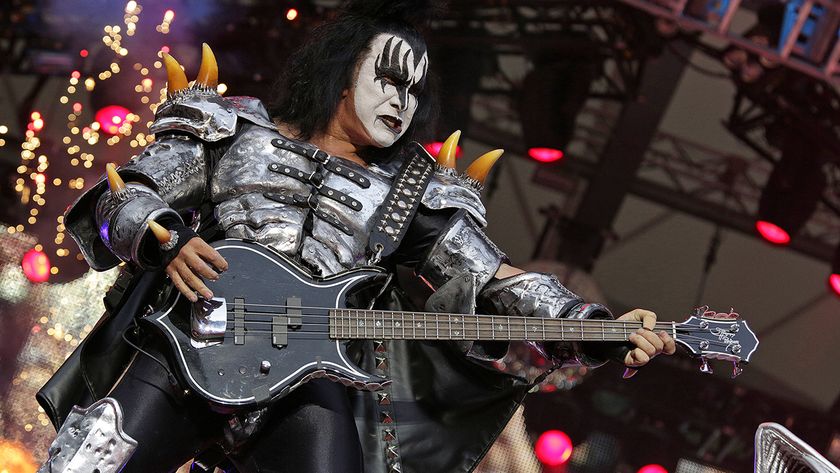
“You can set up amplifiers and drums to your heart’s content”: Gene Simmons defends paid roadie scheme
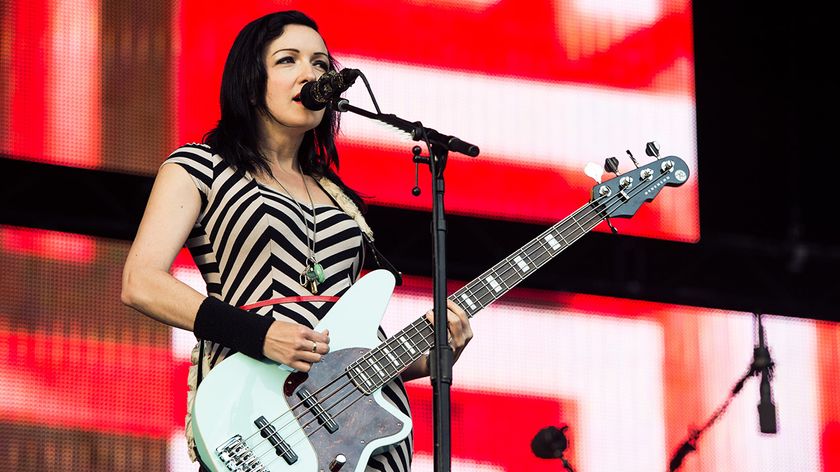
“I woke up to a DM from Shirley Manson asking if I'd be interested in the gig. We had never met”: Former Smashing Pumpkins bassist Nicole Fiorentino on how she landed her role in Garbage – with no audition









